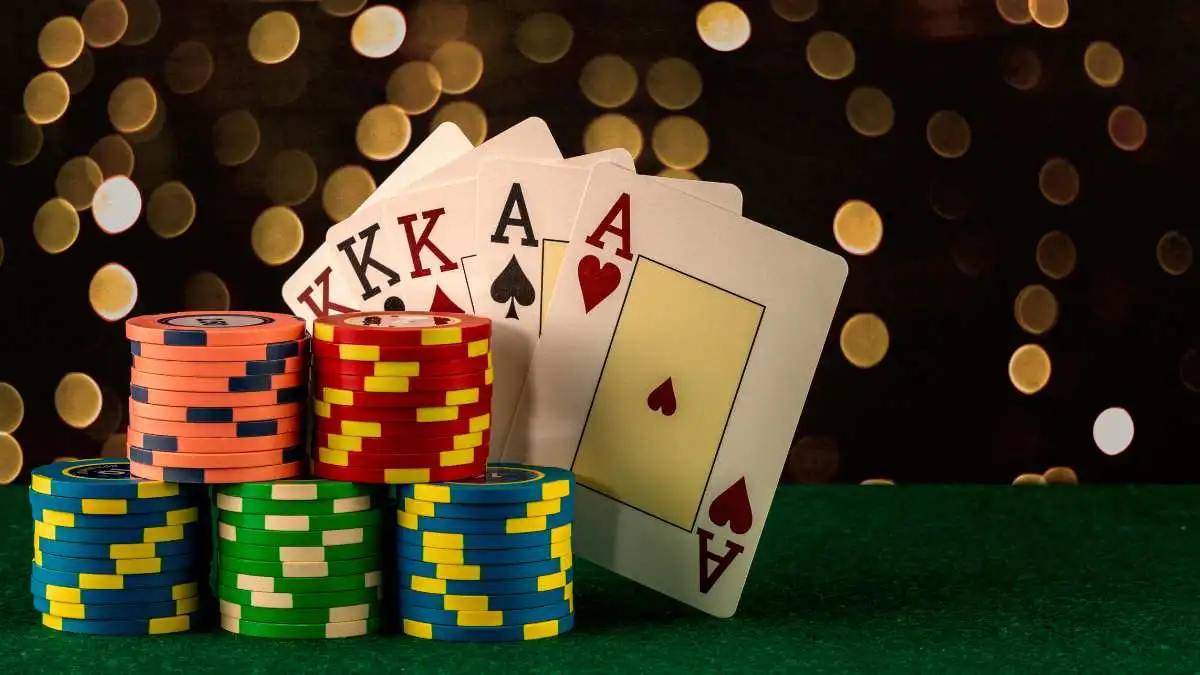Poker is one of the most widely played card games, yet it can still feel a little intimidating to those who have never played before. The good news is that, even if you’ve never played before, you can still expect to become reasonably good at poker in a relatively short period. Remember: even the best players in the world had to start somewhere. Most experts agree that it takes around 10 – 12 months of work before a player gets to the level where they’re routinely winning games. Let’s take a look at that journey.

Understanding the Basics
Understanding the basics of poker isn’t going to be the most fun part of your journey, but it’s an unavoidable step. Poker is more complex than other card games, so you’ll need to spend a little more time learning the rules than you would with, say, blackjack.
Knowing how to play is one thing; putting it into practice is another. The aim is to reach the point where the rules and the flow of the game are just second nature. That’ll afford the headspace you need to really focus on winning.
Practicing with Friends
Odds are there are people in your life who already play poker, or who are as interested to learn as you are. In the early days of your poker-playing career, regular practice will be your best friend. Getting together with friends and family for a weekly or bi-weekly game of poker will help you develop your gameplay in a way that reading about how to play poker cannot. You don’t need to make your poker evenings with friends overly formal, but it’s best to take it semi-seriously. That means minimal talking during gameplay, setting the scene, having a good deck of cards, and establishing house rules. Once you’ve got a good sense of the game, it’ll be time to move on to the next stage.
Leveling Up
It’s all well and good to play poker with friends and family but, at some point, the best players challenge themselves against superior players. The online poker world provides an excellent platform for players to test their skills against others from around the world. There are live games taking place every day, allowing relatively new players to get used to playing against opponents of various abilities. From there, the natural progression is to play at tournaments. Getting a seat at these tables can be difficult, but initiatives like PokerStars Power Path offers players the chance to qualify for the biggest live and online poker tournaments, so you don’t necessarily need to have extensive Vegas-style experience under your belt. Live tournaments provide a different level of challenge to regular online games and typically come with much higher jackpot values.

Diving into Strategy
As we said earlier, playing regularly is the best way to improve your poker game. However, keep in mind that it’s worthwhile spending at least some time each week taking a deeper dive into the game. After all, the more you know, the more tools you’ll have in your skillset and the better you’ll play.
In this day and age, there are countless ways to learn about poker strategy, theory, tips and tricks. There are YouTube videos that’ll outline common mistakes new players make, poker forums that discuss the most effective strategies, and poker training websites that can help you tighten up your weak points and develop your strong points. These “training sessions” don’t have to take up too much space in the calendar. A little bit of effort goes a long way — even small amounts of time each week can lead to great results, simply because players skip this phase of their journey.
Remember: Poker Involves Lifelong Learning
If you think that you’ve mastered poker, then check yourself — you haven’t, because no one has. The best players reach expert level and then realize that they’ll never truly master poker. There’s always something new to learn, so keep your eyes and ears alert.









